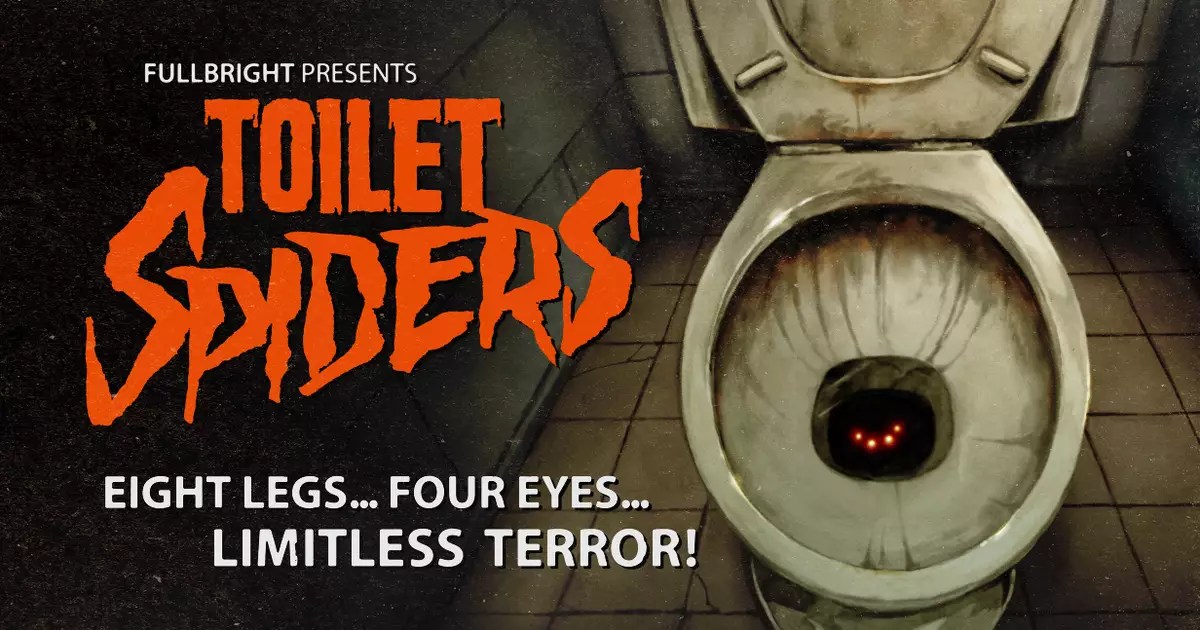Fullbright, a name synonymous with evocative narrative design and atmospheric exploration, has birthed a new title that strays sharply from its established roots. Initially recognized for the poignant storytelling of “Gone Home,” the studio has now delved into the bizarre realm of “Toilet Spiders.” This new entry in the gaming landscape offers a stark departure from the delicate subjects it once handled, veering straight into the realm of absurdist horror wrapped in a lo-fi package. As players step into this outlandish world, it’s crucial to dissect not only its gameplay mechanics but also the underlying commentary interwoven within its narrative.
While “Gone Home” drew players into a heartfelt exploration of family dynamics amid secrets and nostalgia, “Toilet Spiders” presents an extraordinarily strange premise: players navigate a grim Exclusion Zone while evading giant radioactive spiders lurking in toilets. At first glance, it may appear that the transition from emotional storytelling to absurd humor has diminished Fullbright’s creative integrity. However, a closer examination reveals that the game continues its tradition of exploring fear—albeit in a far more overtly bizarre manner.
The game challenges players to manage scarce resources while determining the probability of both survival and successful exploration. Scavenging for light bulbs and grenades maintains a sense of desperation, reminiscent of horror staples, yet tinged with a humorous absurdity. The concept of encountering monstrous arachnids in the most mundane of locations, like bathrooms, juxtaposes the horrifying with the humdrum, forcing players to confront their deepest primal fears about vulnerability at a moment when they least expect it.
Management of limited resources serves as a core mechanic in “Toilet Spiders,” echoing themes found in survival horror games. The tension mounts when faced with the need to prepare for the unknown, drawing upon the player’s instincts and strategic thinking. However, one might argue that the forced confrontation with grotesque spiders is less a thrilling survival experience than a blunt commentary on potential disarray in decision-making during times of distress.
Furthermore, the absence of a “pooping mechanic”—as the original article cheekily suggested—could have heightened the tension and given players an unsettling decision to make every time they entered a bathroom. Fear of the unknown is extended to the absurd, evoking anxiety in situations that players might find themselves in during the most personal and vulnerable moments.
It is notable that Fullbright has transitioned from a company producing deeply personal narratives to one now dabbling in strange, satirical horror. This shift raises questions about the studio’s vision and the impact of its tumultuous history, particularly the departure of co-founder Steve Gaynor amid allegations of workplace toxicity. While some might dismiss “Toilet Spiders” as mere parody or an isolated experiment, a more nuanced interpretation could suggest it acts as a reflection of Gaynor’s internal struggles in light of past controversies.
One potential reading is that the exaggerated horror elements and absurdity found in “Toilet Spiders” serve as a cathartic mechanism, addressing a fractured creative identity and the disillusionment stemming from past failures. The very act of navigating a sinister yet ludicrous environment hints at grappling with real fears—be it professional scrutiny or personal redemption.
Ultimately, “Toilet Spiders” represents both a bold gamble for Fullbright and an opportunity for players to reflect on the nature of fear and vulnerability. While the game ventures into the bizarre, it retains echoes of the emotional horror that characterized its predecessors. As Fullbright navigates its uncertain path forward, it will be fascinating to see if the studio can continue balancing absurdity with meaningful commentary, or if it will further descend into surrealism without anchor. In the end, “Toilet Spiders” is more than just a quirky entry into the horror genre; it is a question mark that beckons players to ponder the depth of its creators’ intentions.


Leave a Reply